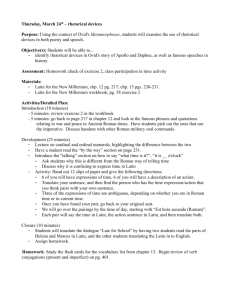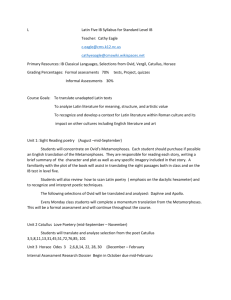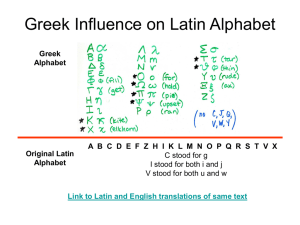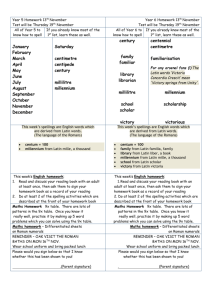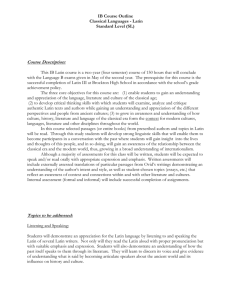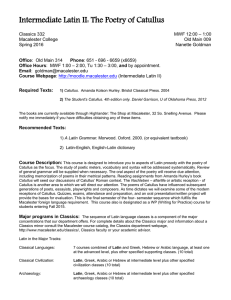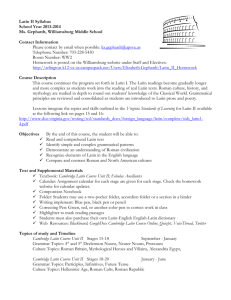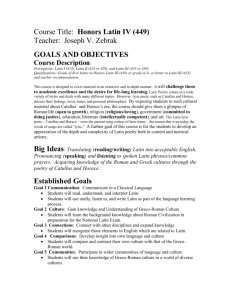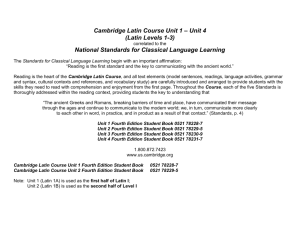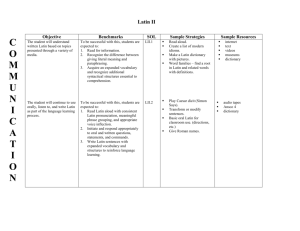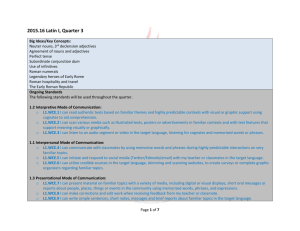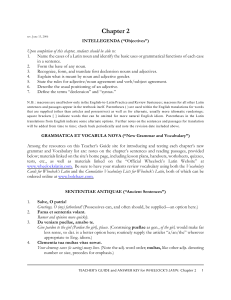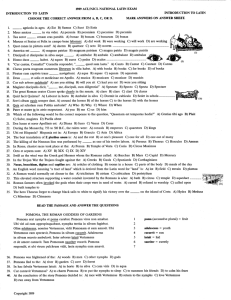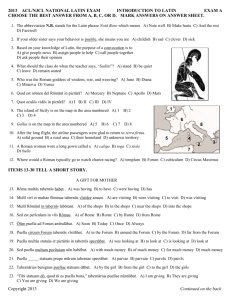Reading PG Latin Summer School - Society for the Promotion of
advertisement
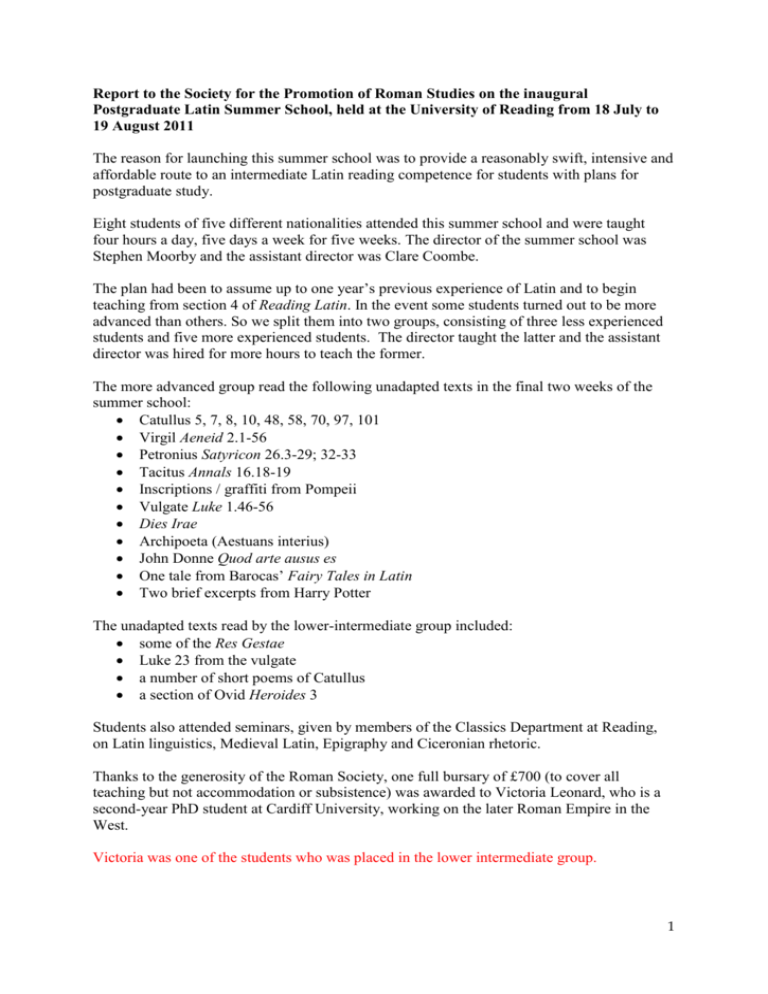
Report to the Society for the Promotion of Roman Studies on the inaugural Postgraduate Latin Summer School, held at the University of Reading from 18 July to 19 August 2011 The reason for launching this summer school was to provide a reasonably swift, intensive and affordable route to an intermediate Latin reading competence for students with plans for postgraduate study. Eight students of five different nationalities attended this summer school and were taught four hours a day, five days a week for five weeks. The director of the summer school was Stephen Moorby and the assistant director was Clare Coombe. The plan had been to assume up to one year’s previous experience of Latin and to begin teaching from section 4 of Reading Latin. In the event some students turned out to be more advanced than others. So we split them into two groups, consisting of three less experienced students and five more experienced students. The director taught the latter and the assistant director was hired for more hours to teach the former. The more advanced group read the following unadapted texts in the final two weeks of the summer school: Catullus 5, 7, 8, 10, 48, 58, 70, 97, 101 Virgil Aeneid 2.1-56 Petronius Satyricon 26.3-29; 32-33 Tacitus Annals 16.18-19 Inscriptions / graffiti from Pompeii Vulgate Luke 1.46-56 Dies Irae Archipoeta (Aestuans interius) John Donne Quod arte ausus es One tale from Barocas’ Fairy Tales in Latin Two brief excerpts from Harry Potter The unadapted texts read by the lower-intermediate group included: some of the Res Gestae Luke 23 from the vulgate a number of short poems of Catullus a section of Ovid Heroides 3 Students also attended seminars, given by members of the Classics Department at Reading, on Latin linguistics, Medieval Latin, Epigraphy and Ciceronian rhetoric. Thanks to the generosity of the Roman Society, one full bursary of £700 (to cover all teaching but not accommodation or subsistence) was awarded to Victoria Leonard, who is a second-year PhD student at Cardiff University, working on the later Roman Empire in the West. Victoria was one of the students who was placed in the lower intermediate group. 1 The performance of students in the final test was very encouraging, and their evaluation forms were generally positive. For next year we intend to make the following slight changes. Plan from the outset to do what in fact we ended up doing, which is to teach at two levels, with one intermediate class and one for beginners (who will be aksed to study on their own up to a certain point before coming on the summer school). This will broaden the appeal of the summer school and increase the number of applicants. Set the fee at £500 instead of £700. This will be sustainable with a larger intake that includes near beginners. What we found this time is that those students who were not on a bursary struggled to find the full amount, so again a lower fee should increase the number of applications. Last year we successfully applied to the SPRS for one full bursary of £700. This year we shall be applying for two full bursaries of £500. Barbara Goff November 2012 2







